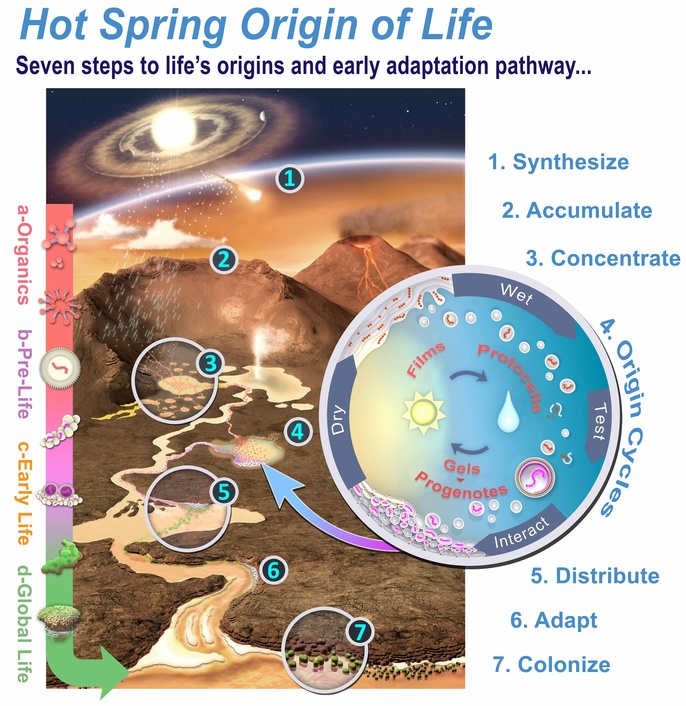UNSW Scientia PhD projects available on:
- Peptides, Membranes, Ancient Geology and the Origins of Darwinian Evolution!
The aim of this project is to investigate what role peptide stabilisation of protocells (liposomes) could realistically provide a selection force capable of explaining the emergence of Darwinian evolution in realistic pre-biotic systems. This project builds on cutting-edge development in self-assembly and peptide chemistry with information gained from geological studies on one of the oldest rock formations on the planet (Pilbara, Australia). The project will study how amino acids and peptides polymerize inside liposomes upon repeated dehydration/rehydration cycles incorporating Precambrian-relevant minerals and clays as catalysts, with the ultimate target being the detection of chemically-evolved 'fit' peptides that stabilize liposomal structures.
See also below for further details
- Prof. Pall Thordarson - School of Chemistry
- Prof. Martin Van Kranendonk - School of Biological, Earth and Environmental Sciences
- Dr Anna Wang - School of Chemistry (from December 2018 - currently at Harvard University)
- Work on high quality research projects with the best supervisory teams in world class environments
- $40K a year stipend for four years
- Tuition fees covered for the full 4 year period
- Coaching and mentoring will form a critical part of your highly personalised leadership development plan
- Up to $10k each year to build your career and support your international research collaborations
- At least 5 of these scholarships will be reserved for Indigenous research candidates.
- Put in an expression of interest application here BEFORE 20th July 2018.
- Shortlisted candidates will be notified before the end of July 2018 and asked to put in an application for PhD at the end of July or early August and a FULL application (only if invited) by or before 1st September 2018. Offers will be made from early November 2018.
